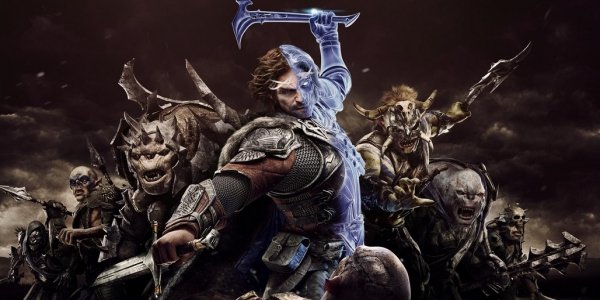Why Loot Boxes Aren't Gambling, According To The ESRB

Your Daily Blend of Entertainment News
You are now subscribed
Your newsletter sign-up was successful
One of the hot button topics of today involves loot boxes. Publishers love them; gamers are starting to hate them. The core community has been calling to have loot boxes in triple-A games like Middle-Earth: Shadow of War labeled as gambling, and has been pressuring ratings boards to comment on the matter. Well, the ESRB issued a statement when asked.
In speaking with Kotaku, an ESRB representative explained...
While there's an element of chance in these mechanics, the player is always guaranteed to receive in-game content (even if the player unfortunately receives something they don't want). We think of it as a similar principle to collectible card games: Sometimes you'll open a pack and get a brand new holographic card you've had your eye on for a while. But other times you'll end up with a pack of cards you already have.
A lot of people weren't very fond of this explanation from the ESRB. Some people questioned what would then be the difference if actual casinos began giving out items even if people lost a bet or a gamble? How would that differ from the loot boxes?
Unfortunately there were no answers providing further context regarding the ESRB's description of loot boxes not being gambling simply because you receive an item.
The main issue most people have is that premium loot boxes in triple-A games see players paying money to open up random boxes in hopes of gaining decent loot. It's easy to get trapped spending big bucks in hopes of uncovering high-end gear, no different than playing a slot machine.
In China, however, they don't see that way at all. In fact, in China they absolutely do see loot boxes as gambling, which is why they mandated by law to have companies show the odds of item acquisition through percentages when it's time for users to purchase a loot box. Even companies like Blizzard had to comply with Chinese regulation that dictates that loot boxes have to have their percentages on display.
South Korea also has strict measures on what's considered in-game gambling, something that caused Blizzard major hardships when the company was trying to get the regulators to approve the use of the RMAH in Diablo 3 within the region.
Your Daily Blend of Entertainment News
For PEGI, the organization issued a statement to WCCF Tech explaining that it's not about whether or not loot boxes in games like Middle-Earth: Shadow of War or Star Wars: Battlefront II are actually forms of gambling, the organization stated that it was more a matter to be determined by the regional gambling commissions...
In short, our approach is similar to that of ESRB (I think all rating boards do, USK in Germany as well). The main reason for this is that we cannot define what constitutes gambling. That is the responsibility of a national gambling commission. Our gambling content descriptor is given to games that simulate or teach gambling as it's done in real life in casinos, racetracks, etc. If a gambling commission would state that loot boxes are a form of gambling, then we would have to adjust our criteria to that.
In the past, some gambling commissions weren't entirely fond of loot boxes. The Washington State Gambling Commission sent a cease and desist to Valve when the Counter-Strike: Global Offensive gambling rings (which used loot boxes for betting and trading) were discovered, even though Valve had no direct ties or affiliation to those gambling rings. Australia also banned the use of eSports betting and gambling, but have yet to address the current situation regarding loot boxes in games like Forza Motorsport 7 or Star Wars: Battlefront II.
Staff Writer at CinemaBlend.

